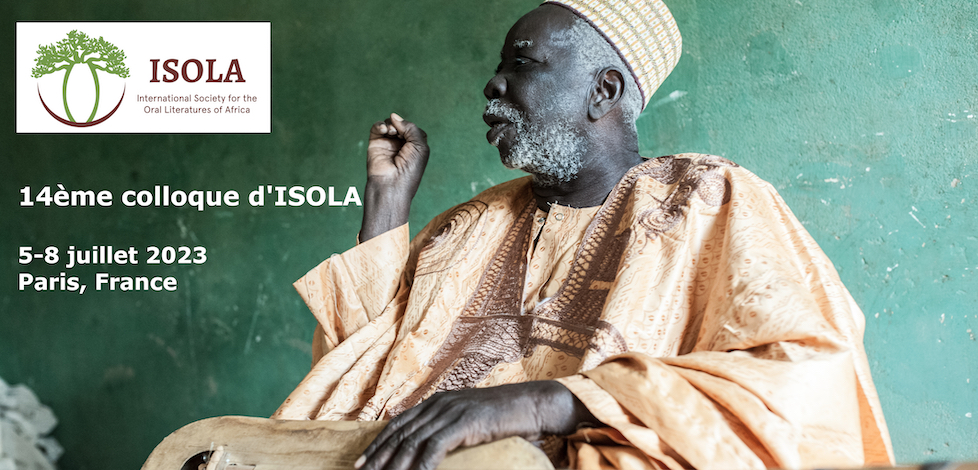Le conjoint non humain et autres motifs « transhumanistes » dans la littérature orale wolof sont une porte d'entrée plus qu'intéressante dans une réflexion sur les représentations de la nature et sur ses interactions avec humains et non-humains. Un tel sujet nous plonge dans une problématique autour des notions de non-humain, de « transhumanité » et de nature, notions qui soulèvent un certain nombre de questions : quelles sont les représentations de la nature dans la littérature orale wolof ? Peut-on véritablement parler de « nature » et en quels termes : de lieux, d'habitat, d'environnement ? Comment ces représentations du non-humain et de la nature sont-elles réinvesties dans des genres ou des champs plus modernes, certains motifs passant de la littérature orale traditionnelle à des genres littéraires plus récents et se retrouvant dans des champs et des domaines qui interrogent sur les rapports de l'être humain avec son environnement. La métamorphose sera au cœur de cette tentative de penser autrement les représentations littéraires en question, abordées sous l'angle de changement à tous les niveaux : changement de forme, d'apparence, de nature et d'espace. Cette approche nous conduit vers l'hypothèse selon laquelle cette nature multiforme pourrait être une sorte d'« hyper représentation » se mouvant et se métamorphosant selon une dynamique des motifs littéraires en question. Nous avons choisi d'aborder notre propos sous un angle qui, prenant en compte tous les genres oraux wolof, met le focus sur les mouvements des représentations du non-humain dans entre les différents espaces où ont lieu leurs interactions avec les humains et sur leurs discours relatifs à la nature, aux rapports entre l'homme et le non-humain et la nature.
Ndiabou Séga TOURÉ est enseignante-chercheur à l'université Cheikh Anta Diop de Dakar. Ses recherches portent sur des genres dits « mineurs » de la littérature orale wolof, comme les histoires drôles et le taasu (un genre poétique oral), et sur l'utilisation de certains genre oraux dans les publicités télévisées au Sénégal. Son dernier article porte sur la « Référence à la parole patrimoniale dans les slogans publicitaires au Sénégal », (Paroles d'Afrique, revue Cargo, n°4, 2015).
From Mother Bush to non-human spouse: nature in all its forms
The non-human spouse and other "transhumanist" motifs in Wolof oral literature are a more than interesting entry point into a thinking on the representations of nature and its interactions with humans and non-humans. Such a subject plunges us into a problematic around the notions of non-human, "transhumanism" and nature, notions that raise a certain number of questions: what are the representations of nature in Wolof oral literature? Can we really speak of "nature" and in what terms: of places, habitat, environment? How are these representations of the non-human and of nature reinvested in more modern genres or fields, certain motifs passing from traditional oral literature to more recent literary genres and being found in fields and domains that question the relationship of the human being with his environment. Metamorphosis will be at the heart of this attempt to think differently about the literary representations in question, approached from the angle of change at all levels: change of form, appearance, nature and space. This approach leads us to the hypothesis that this multiform nature could be a kind of 'hyper-representation' that moves and metamorphoses according to the dynamics of the literary motifs in question. We have chosen to approach our subject from an angle which, taking into account all the Wolof oral genres, focuses on the movements of the representations of the non-human in the different spaces where their interactions with humans take place and on their discourses relating to nature, to the relationship between humans and the non-human and to nature.
Ndiabou Séga TOURÉ is a professor at Cheikh Anta Diop University in Dakar. Her research focuses on so-called "minor" genres of Wolof oral literature, such as funny stories and taasu (an oral poetic genre), and on the use of certain oral genres in television advertising in Senegal. His latest article is on "Référence à la parole patrimoniale dans les slogans publicitaires au Sénégal", (Paroles d'Afrique, revue Cargo, n°4, 2015).

 PDF version
PDF version
